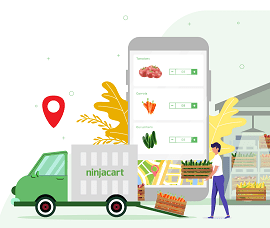ITC initiates ‘Watershed Programme’ for integrated watershed development
ITC has partnered with various states programmes such as MGNREGS and NABARD for watershed development in 5.6 lakh acres area
ITC Limited, one of India’s leading multi-business conglomerates and an exemplar in environment sustainability said that it was rapidly scaling up its highly acclaimed Integrated Watershed Development and Environmental Resources Replenishment initiatives through partnerships with various state governments. These partnerships will be largely focussed on water stewardship and biodiversity conservation.
Water Stewardship Initiatives
ITC’s watershed programme today covers more than 1,000,000 acres across India. Under this programme, the company has adopted a comprehensive approach focussed on supply augmentation and demand side management. Supply augmentation covers area treatment, water harvesting, groundwater recharge and biodiversity conservation and demand side management aims at improving water use efficiency in principal agricultural crops of area.
The success of ITC’s integrated water management approach has not only benefitted farmers by enhancing crop yields and expanding cultivation area but has also led to large savings through efficiency in water usage.
ITC’s Water Stewardship programme is also a community based participatory approach. It employs low cost technologies to arrest soil erosion, enhance moisture, conserve rainwater and recharge groundwater. The benefits of ITC’s water stewardship programme are multiple and multidimensional.
With water scarcity increasingly becoming an area of concern, ITC continues to focus on an integrated water management approach within the fence that includes investing in water conservation measures and rainwater harvesting initiatives at its units. For larger coverage and scale, ITC has also partnered with various state government departments and programmes such as Mahatma Gandhi National Rural Employment Guarantee Scheme (MGNREGS) programme and National Bank for Agriculture and Rural Development (NABARD) for watershed development in 5.6 lakh acres area.
Similarly, as part of demand management, ITC has entered a partnership with Water Resources Department of Maharashtra to improve water productivity in 2.42 lakh acres of command area which is under four irrigation schemes spread in four districts of the state. This partnership aims at supporting the government’s ‘More Crop per Drop’ credo and reduce crop water demand in the dams.
These large scale interventions will serve as meaningful examples and inspire many more such fruitful programmes in this area to benefit farmers.
Highlighting ITC’s environment sustainability initiatives, Chitranjan Dar, Corporate Management Committee Member at ITC responsible for overall supervision of Quality Assurance, ITC Life Sciences & Technology Centre, Central Projects Organisation and Environment, Health & Safety said, “Going forward, our focus on sustainability and environment stewardship would gain larger significance in the post-Covid-19 period. The lockdown period has witnessed nature healing itself and going forward, citizens will expect corporates to demonstrate larger steps to replenish and preserve the environment.”
“We believe that expanding interventions in environment replenishment and addressing climate change will be critical for a sustainable future. An enterprise of tomorrow is one that pursues competitive growth to create larger value for society even as it enriches the environment and creates opportunities for sustainable livelihoods. Our Integrated Watershed Development programme, large scale afforestation programme, our renewable energy and green buildings footprint are some of the successful pivots in our strategy to pursue ‘Responsible Competitiveness’ – a socio-economic construct that underpins the ITC’s objective to be future ready whilst ensuring that growth is sustainable and inclusive,” Dar added.
ITC has partnered with various states programmes














